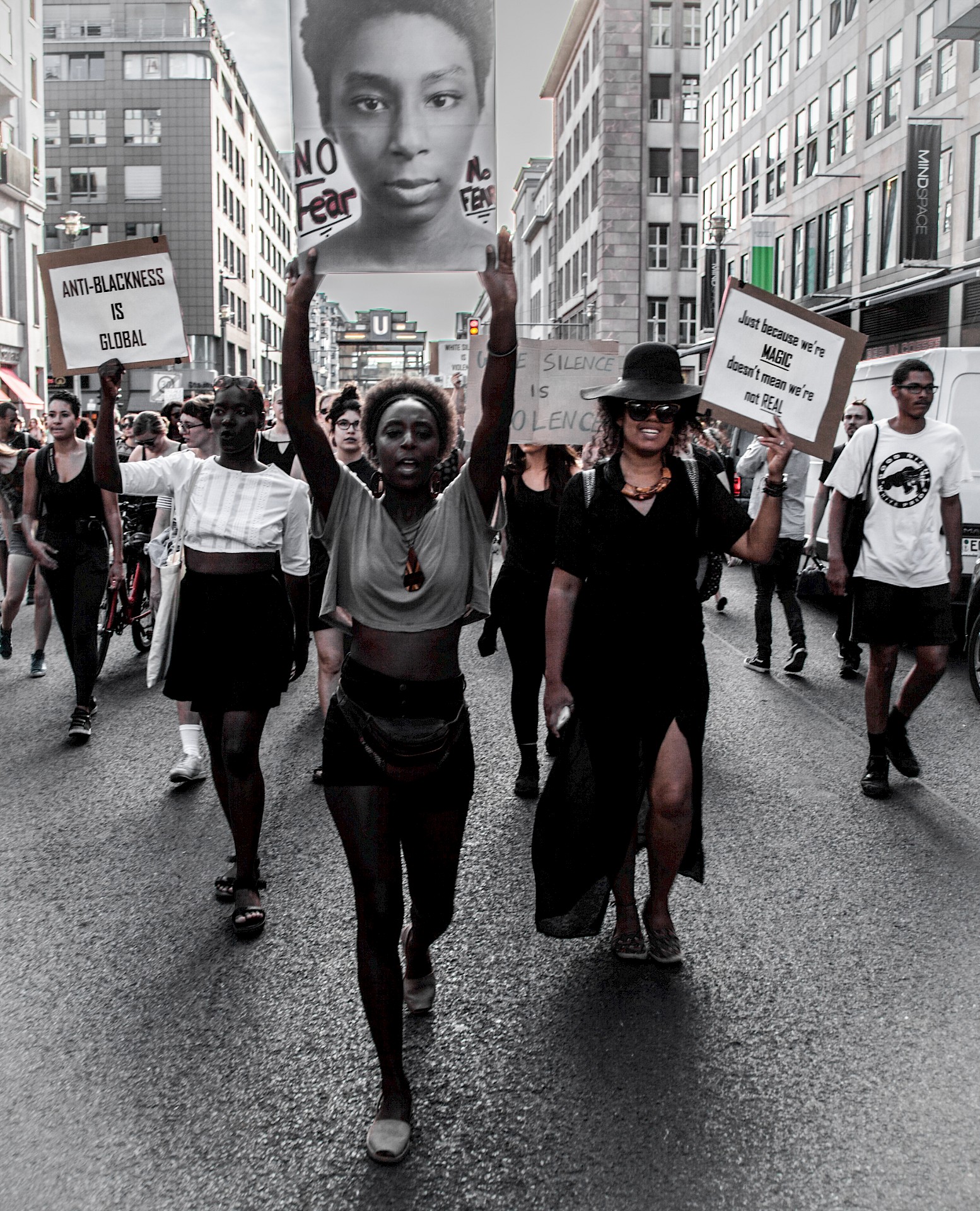Ecofeminism and the Politics of the Commons
Exercise #5: WE WHO ARE NOT THE SAME
08.12.2018 19:00
With Marwa Arsanios, Aleksandra Jach and Antje Majewski
Entry Free – Donations welcome
Curators Nathalie Anguezomo Mba Bikoro, Elena Agudio, Federica Bueti
Team Cornelia Knoll, Kelly Krugman, Kamila Mohamed Metwaly, Jörg-Peter Schulze
If you like to bring your child, kindly send us a message at childcare@savvy-contemporary.com until 05.12.2018. Let us know how old your kids are, so we can organise adequate child care.
For the last exercise of WE WHO ARE NOT THE SAME, we intend to address concepts of sustainability, ecology, social reproduction from the perspective of feminist environmental politics, interrogating the possibility of reconciling the social, the ecological and the economic sphere. The question at stake here is: How can artistic imagination help us understand, problematize and enable ecological thinking?
Political economist Bengi Abkulut contends that “the field of care is not only a realm of immense value and production, but it is arguably the largest and the most fundamental commons on which all of us depend. In this respect, carework is a commons: it is the most fundamental basis of social reproduction to which we all contribute and to which we all owe our existence” [1]
For this fifth exercise, we have invited the artists Antje Majewski and Marwa Arsanios together with curator Aleksandra Jach to talk about their recent projects in which they reflect on environmental questions, forms of intraspecies solidarity, and feminist ways of communing. Women around the world have been at the forefront of struggles for land and for the communal cultures that European colonization, war, capitalist production had attempted to destroy. The case of the feminist and ecological project in Rojava, in Northern Syria, for instance, which is the focus of Marwa Arsanios’ current research, is an example of an attempt at creating a sustainable “ecological society” based on co-operative economy. Arsanios wonders about the kinds of democracies that are enabled by such feminist practices of communing without nation, and the kind of ecological society possible under the conditions of war. The accelerating forces of capitalist destruction, toxicity of white supremacy and racial capitalism combined have seem to make impossible to imagine a way out of contemporary capitalist economy.
The production of the commons requires, as Maria Mies argues, a profound transformation in our daily life in order recombine what the social division of labour in capitalism has separated. In an interview, Antje Majewski invites us to see ourselves as part of a social and ecological fabric – which involves human and non-human actors – and in which each of our activities, probably even each of our thoughts, has a direct impact on many other beings. [2] For this conversation, the artist will be joined by curator Aleksandra Jach, who is co-founder of E.F.A (Ecological Feminist Anarchy), a duo for pedagogical, activist, and artistic-curatorial activities, and co-curator of the exhibition “How to talk with birds trees fish shells snakes lions and bulls” currently on show at Hamburger Bahnhof. Jach is also involved in the female collective “Sisters of the Rivers” who fight for the recognition of the Polish rivers as a commons.
Marwa Arsanios is an artist, filmmaker and researcher who reconsiders politics of the mid-twentieth century from a contemporary perspective, with a specific focus on gender relations, urbanism and industrialisation. She approaches research collaboratively and seek to work across disciplines. Arsanios’s work has been the subject of solo exhibitions at the Beirut Art Centre (2017); Hammer Museum, Los Angeles (2016); Witte de With Centre for Contemporary Art, Rotterdam (2016), among others.
Aleksandra Jach works as a curator at Muzeum Sztuki in Łódź, Poland. Recent projects include Antje Majewski et al. Apple. An Introduction. (Over and over again)“ (with Joanna Sokołowska), Muzeum Sztuki in Łódź (2014); Avant-garde and Socrealism (with Marta Olejniczak, Piotr Olkusz); Everything Is Connected to Everything Else, Festival of Literary Translators in Gdańsk (2015): The Anthropocene Index (2015); Superorganism. The Avant-garde and the Experience of Nature, Muzeum Sztuki in Łódź (2017); Shapeshifting: Eisenstein as Method, Muzeum Sztuki in Łódź (2018).
Antje Majewski is an artist and initiator of various curatorial, activist, and research projects. Her work as a painter, filmmaker and collaborative/transdisciplinary artist explores ecofeminism (E.F.A), the political ecology of things (The World of Gimel: How to Make Objects Talk, Kunsthaus Graz, 2011) and nature/culture entanglements (Apple. An Introduction. Over and over and once again, Muzeum Sztuki, Łódź et al.). Majewski is a professor at the Muthesius University of Fine Arts and Design in Kiel.
Support The project We Who Are Not The Same is funded by Hauptstadtkulturfonds.
Photo Courtesy: Zana Omar (VOA) [Public domain], via Wikimedia Commons.
Bengi Abkulut, Carework as Commons: Towards a Feminist Degrowth Agenda, Degrowth.de Blog, 2017
On ecological thinking and practice. Conversation between Aleksandra Jach and Antje Majewski, via mail, 2015. Available through: http://www.antjemajewski.de/2015/10/23/on-ecological-thinking-and-practice-conversation-between-aleksandra-jach-and-antje-majewski-via-mail-2015/

